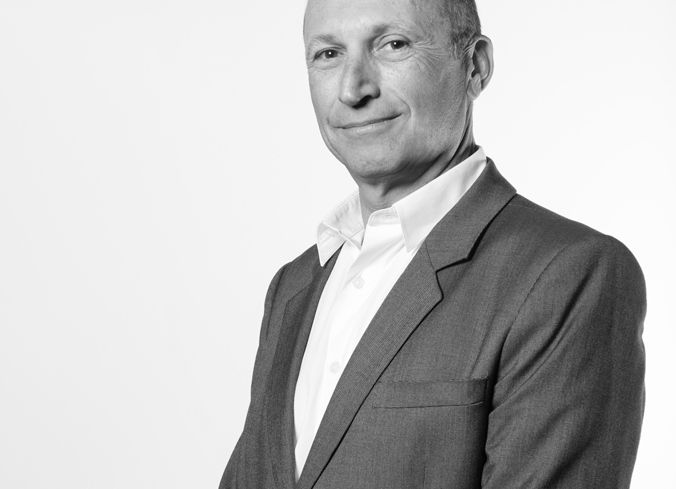5 Questions on STRs With Ricardo Dunin of Miami-Based North Development
By Jeff Ostrowski July 22, 2024 7:00 am
reprints
Ricardo Dunin is no stranger to developing short-term rentals. Back in the 1990s, he headed the team that transformed the Mutiny Hotel in Coconut Grove, Fla., into a condo-hotel, where units are owned by individual investors but can be rented out for a night or two.
At the time, the condo-hotel was such a novel concept that Dunin wasn’t sure how to market it.
“Should we use ‘aparthotel’? Should we use ‘condo-hotel’? I used to joke with people that I spent half my time explaining what the concept was,” Dunin told Commercial Observer.
A quarter-century later, short-term rentals need little explanation. Dunin is founding partner of Miami-based North Development, a company launching the Domus FLATS brand of short-term rentals.
The company’s first two projects are being built in Miami’s Brickell district. Prices range from $500,000 to $1.5 million, although most units are small studios priced around $500,000.
The following conversation has been edited for length and clarity.
Commercial Observer: Why is the short-term rental trend taking off?
Ricardo Dunin: If you want to get from Point A to Point B, you used to take a taxi. Now an Uber is cleaner, cheaper, more efficient. We believe we’re doing the same thing with short-term rental. We came up with FLATS — flexible apartments for temporary stays. We’re taking the old concept of condo-hotel and updating it.
How has the condo-hotel concept changed?
In multiple ways. It starts with technology, as always. We wanted to make it very technology-friendly for the guests. People love Airbnb because of pricing. People don’t love Airbnb because they don’t know what they’re getting. We’re creating a brand, Domus FLATS, and we’re taking very seriously the customer experience. We don’t want to be a five-star experience, because people don’t want to pay for that. We want to be four-star. We want to bring hospitality to the highest possible level within what we offer.
In my mind, my main client is not the buyer of the condo but the guest of the product. Our job doesn’t end when we do the closing; that’s when the work starts. Now, what we offer is not the traditional hotel experience. On FLATS, you will do your booking through an app. You will do your check-in through an app, and you will get your key through an app. People don’t want to stand in line at a front desk, so we eliminated the front desk. We’re trying to streamline everything.
Your first two projects are under construction. What will they look like when they’re completed?
We want a building that has a soul. All our buildings should have strong food and beverage operations. The lobby gets replaced by a big coworking food and beverage experience. By day, you can have coffee. By night, you could have a drink. Good music, good art. We believe embracing art is an important part of everything we do — mostly local emerging artists.
This is not a building for people that want to buy and rent themselves. If I want to buy five units for my wife to run, you’re in the wrong place. Whoever manages it needs to have very high standards.
We want to protect people from themselves. We don’t want the quality of our building to suffer because we have rookie hoteliers. A lot of developers build a condo, they put a condo-hotel label on it, and ‘Good luck.’ I don’t think it works. We cannot take that risk, because we want to build more Domuses.
So if you buy a unit in our building, you can hire a management company that checks all the boxes. Or you can sign a management contract with us, and we’ll manage it for you.
How much are room rates going to be?
That’s a market-driven question and it’s going to change between now and when we open. This tends to be a little cheaper than a hotel, because you have less services. This is an upgrade from what you have with an Airbnb, where someone gives you a key, and you’re on your own.
Here, you’re not on your own. There’s a general manager, an assistant GM, a 24-7 call center. But it’s not trying to be a four- or five-star hotel. That said, if the concept takes off and people really love that they have a kitchen and a washer and dryer, it could be more expensive than a hotel.
Your first two projects are in Brickell. What’s next?
We want to do different locations. I don’t want to do a third one in Brickell. The first two are different enough in product type that I’m not concerned, but we wouldn’t want to do a third short-term rental product in Brickell.
We’ll go north, or we’ll go south. We’re interested in any location that’s good for a hotel. A lot of sites are good for condos but not good for hotels, so we discard those right off the bat. Density is another issue. We believe the price per key should be around $500,000. We see some other projects selling studios close to $1 million. We don’t think that’s doable. I don’t want to mislead my buyer into overpaying for a unit.
Jeff Ostrowski can be reached at jostrowski@commercialobserver.com.



